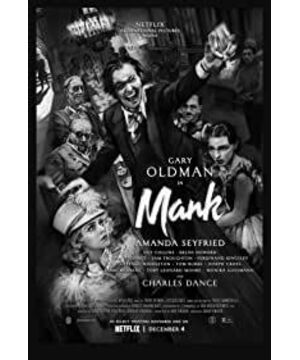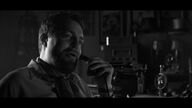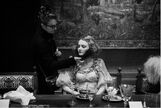Can't seem to watch Mank without knowing Citizen Kane. There is no way to make a conclusion, because the opportunity to watch "Mank" instead of "Kane" has been lost.
Before "Mank", I deliberately reviewed "Kane". "Citizen Kane" is about a media mogul, why he is who he is, and why he lived that way. It can be summed up as character determines destiny, and character is based on childhood.
"Citizen Kane" was an epoch-making film in 1941, and even if you watch it today, you can still find its distinctive brilliance among contemporary films.
Eighty years later, is the "Mank" derived from it also twinkling?
I don't think its black and white tones are deliberately humbling the light, and I don't even think it's the best idea.
The temperament of contemporary people is too different from that of the 1930s and 1940s. Black and white pictures may cover up spots and wrinkles, but they cannot stop the demeanor and eyes of the spirit of the times. There are too many contemporary ones, how to make up, how to say lines, how to mobilize the camera, although it is deliberately retro, but the effect of intermittent retro is more obvious, reminding the audience from time to time, "You are definitely not watching the 1930s and 1940s".
"Mank" story? Not as great as Mank's poster (don't be fooled), much less Mank's (Herman J. Mankiewicz) Citizen Kane. How could the man who drank too much but talked a little too much compared to the man he wrote who was supposed to be president sooner or later? The whole film only answers one question, why did Manke write "Citizen Kane"?
As for why this question is being asked, it may be to insinuate the present - the evil elephant party and the good donkey party, fake news and public opinion manipulation. I hope someone uses movies to ask such questions, how did the upper echelons of Hollywood change from red to blue?
View more about Mank reviews











